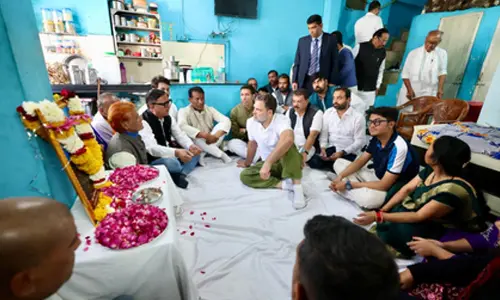Everything about contraception

- Contraceptive use and controlled fertility are safer than unregulated childbearing
- WCD day is observed to help the understanding of contraception’s usefulness in avoiding unwanted pregnancies and reduce the risk of sexually transmitted diseases including HIV
World contraception day takes place on September 26th every year. Launched in 2007, the day is a part of a global campaign to raise awareness of all available contraception methods and to enable young people to make informed choices on their sexual and reproductive health.
World Contraception Day (WCD) was first observed on 26th September 2007 to improve the understanding of birth control and family planning. The major objectives of WCD are to increase understanding of contraception's effectiveness in preventing unwanted pregnancies, which most often lead to high-risk abortions and maternal mortality, and sexually transmitted diseases such as HIV. WCD is supported by various eminent government and international NGOs.
Why is awareness of contraceptives important?
• Awareness about the different kinds of contraceptives available helps individuals to make informed choices
• The prevention of unintended pregnancies plays a pivotal role in reducing the incidence of maternal ill-health and deaths
• Contraception and family planning can be beneficial in delaying pregnancies in young girls and older women who are at an increased risk of health problems from unintended pregnancies
• By reducing rates of unintended pregnancies, it also significantly minimizes the need for unsafe abortion while lowering the risk of HIV transmissions from mothers to newborns
• It also helps individuals avoid sexually transmitted infections
• Access to contraceptives, moreover, has allowed individuals to make planned pregnancies with space, and avoid unwanted ones. This has proven to reduce the maternal and infant mortality rate
• As better contraception leads to better family planning, this also helps many families lift themselves out of poverty
What are the different types of birth control?
Women can choose from many different types of birth control methods. These include (in order of most effective to least effective at preventing pregnancy):
• Female and male sterilization (female tubal ligation or occlusion, male vasectomy) — Birth control that prevents pregnancy for the rest of your life through surgery or a medical procedure.
• Long-acting reversible contraceptives or "LARC" methods (intrauterine devices, hormonal implants) — Birth control that your doctor inserts one time and you do not have to remember to take every day or month. LARCs last for 3 to 10 years, depending on the method.
• Short-acting hormonal methods (pill, mini pills, progesterone injections, patch) — Birth control that your doctor prescribes that you remember to take every day or month.
• Barrier methods (condoms, diaphragms) — Birth control that you use each time you have sex.
• Natural rhythm methods — Not using a type of birth control but instead avoiding sex and/or using birth control only on the days when you are most fertile
What is the best method of birth control?
There is no "best" method of birth control for every woman. The birth control method that is right for you and your partner depends on many things and may change over time. Before choosing a birth control method, talk to your gynaecologist about:
• Whether you want to get pregnant soon, in a few years, or never
• How well each method works to prevent pregnancy
• Possible side effects
• Your overall health
• How comfortable you are with using the method (For example, can you remember to take a pill every day?)
(The author is a Consultant Gyneacologist at Apollo Cradle & Childrens Hospital, Hyderabad)















